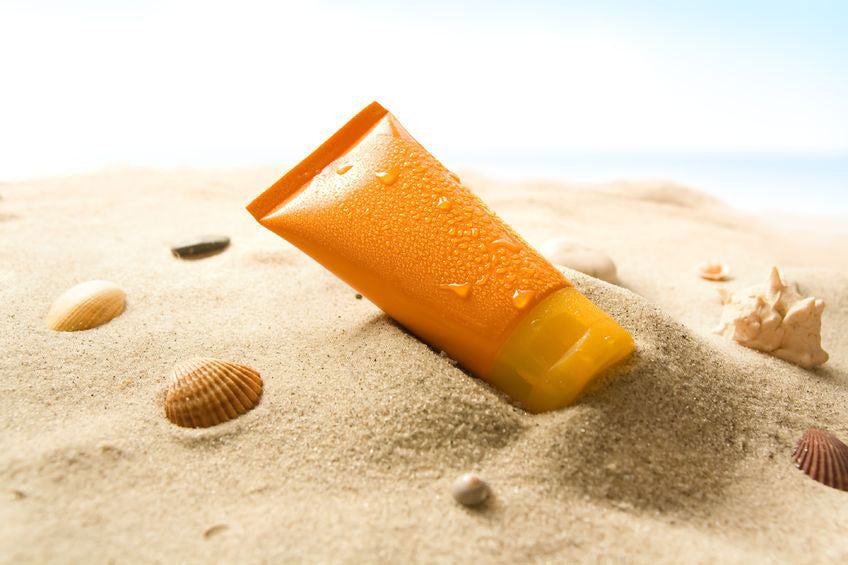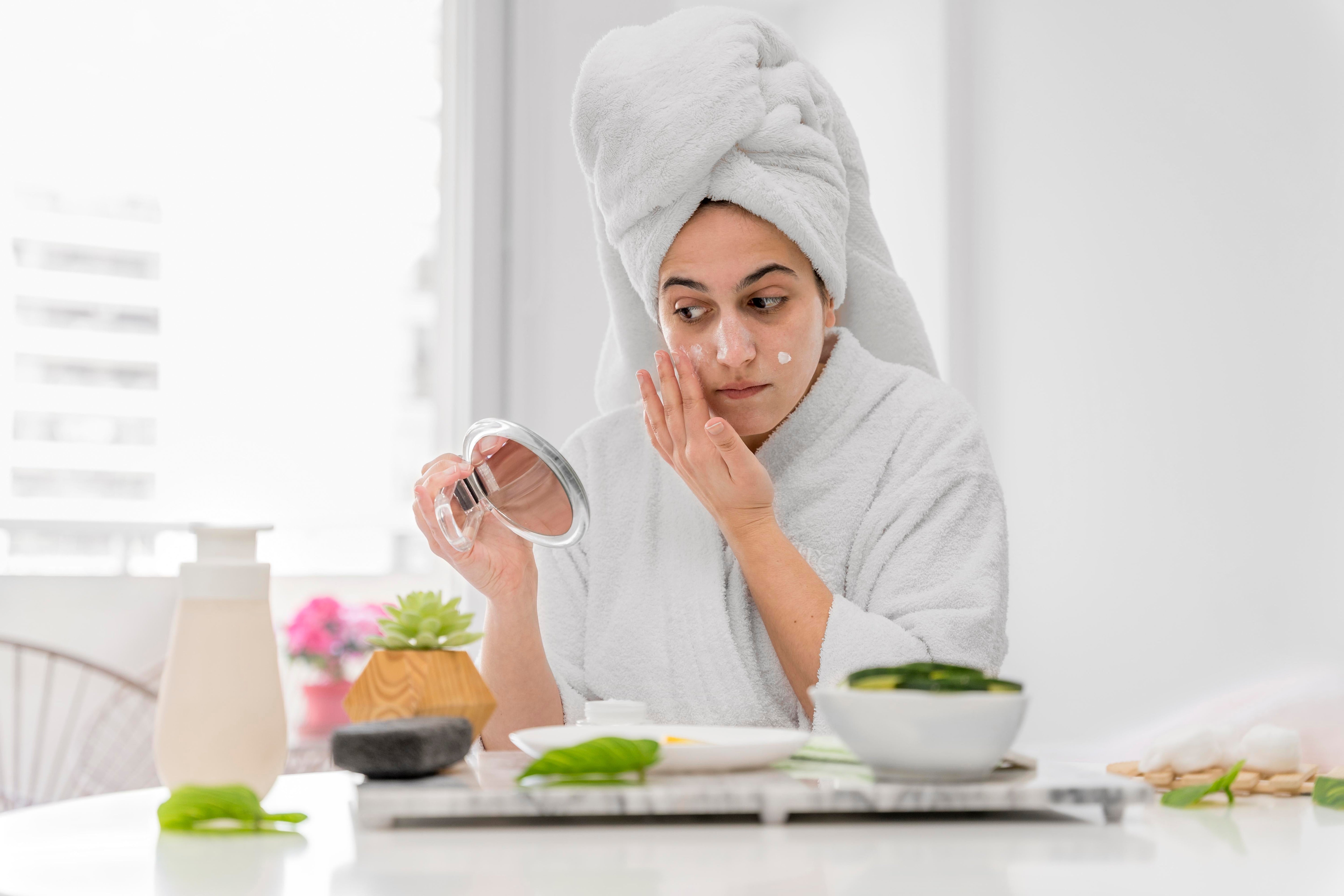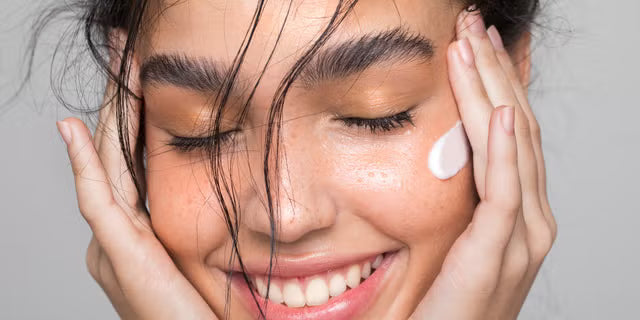
The Ultimate Guide to Sunscreen: Protecting Your Skin Year-Round
Sunscreen is a trustworthy partner, not just in summer but 365 days a year. It is essential to maintain a healthy skincare routine, including sunscreen, which is a vital part of it. Whether you are enjoying your time in the outdoor spaces or sitting by a window, ultraviolet rays are present everywhere to damage your skin. You need to protect your skin from these harsh rays with a strong skincare routine. These harmful rays can lead to skin damage, such as premature aging, increased risk of cancer, and hyperpigmentation. Here, we have The Ultimate Guide to Sunscreen: Protecting Your Skin Year-Round. You will get to know how the sunscreen works and its importance in protecting the skin year-round.
The Ultimate Guide to Sunscreen: Protecting Your Skin Year-Round
The sunscreen is an important part of the skincare as it protects our skin from the damage caused by UV rays. What are these UV rays? The sun emits two types of ultraviolet rays that are responsible for causing damage to the skin: UVA and UVB. The UVA rays can penetrate deep into the skin, which can lead to premature aging and wrinkles. UVB rays are the harmful rays that are responsible for causing sunburn and can increase the risk of skin cancer. Sunscreen helps protect the skin from the harmful rays. These harmful rays can be reflected and absorbed by the sunscreen, and can protect the skin before they cause damage.
What if I don’t apply Sunscreen?
If you don’t apply sunscreen daily or don’t use sunscreen daily, then there can be several risks, including:
- Sunburns due to sun damage can affect the outermost layer of the skin.
- Premature aging signs, such as wrinkles, dark spots, and age spots, can be seen on the face.
- The harmful sun rays can lead to skin cancer, which is a deadly form of cancer.
- If you don’t apply the sunscreen, then the weekend immune response can become more susceptible to environmental factors.

How does a sunscreen work?
A sunscreen contains all the essential and active ingredients that can either block or absorb the UV radiation to protect the skin against the sun. The mineral sunscreens include all the vital ingredients, such as zinc oxide, which can reflect the UV rays from the surface of the skin. These sunscreens don’t irritate sensitive skin and can offer results immediately after applying. The chemical sunscreens use compounds that are capable of absorbing the UV rays. These sunscreens feel lighter on the skin but need to be reapplied after a shorter time.
Which SPF offers the best protection against UV rays?
SPF or Sun Protection Factor in a sunscreen plays a crucial role in measuring how well a sunscreen can protect the skin against the harmful UV rays, especially UVB rays. If your sunscreen has SPF 15, it can block about 93% of the UVB rays; if the SPF is 30, it offers protection by blocking 97% of the UV rays. A sunscreen with an SPF of 50 and 100 offers sun protection by blocking 98% and 99% UVB rays, respectively. No sunscreen is available right now that can block 100% of the UV rays. You need to reapply the sunscreen every 2 hours when involved in outdoor activities.
Year-Round Sunscreen Use: A Must in a skincare routine
It is crucial to apply sunscreen to your skin throughout the year, irrespective of the season. Year-round sunscreen use is a must in one’s skincare routine.
- In summer, when the UV levels are the highest and the risk of higher damage to the skin is high. In this season, it is crucial to apply sunscreen on the exposed areas of your body before going out in the sun.
- Winter has cooler temperatures, but these temperatures are not able to block the UV rays and can make your skin drier and lead to various skin concerns. You need to apply the sunscreen every day, even on cloudy or cold temperatures, during outdoor activities.
- UV rays can affect the skin while you are driving or working near the windows. It is crucial to apply sunscreen even if you are indoors.
How to choose the right sunscreen?
Choosing the right sunscreen is an important part of the skincare routine to protect the skin against the harmful factors that can cause damage to the skin. An ideal sunscreen, according to your skin type, can protect your skin by blocking the dangerous UV rays. But now the question is, how can I choose the ideal sunscreen as per my skin type? What do I need to look for in the sunscreen? Don’t worry, we have the solution and guide for you to choose the right sunscreen.
1. Broad-spectrum protection ensures the protection of your skin from the harmful UV rays, including UVA and UVB rays, and can prevent several skin concerns, such as fine lines, wrinkles, and acne spots.
2. If you consider a sunscreen for daily use, then a sunscreen with SPF 30 is sufficient. In the outdoor activities, it is required to apply a sunscreen with a higher SPF. If you stay engaged in outdoor activities or have sensitive or acne-prone skin, then sunscreen with SPF 50 can be a good option.
3. When looking for the right sunscreen, it is crucial to consider your skin type.
- If you have oily or acne-prone skin, then a non-comedogenic and oil-free sunscreen is a good choice that makes your skin feel light and non-greasy.
- If your skin type is dry, then you need to look for sunscreens that can offer hydration to your skin and keep it nourished all day long.
- Sensitive skin needs mineral sunscreens that cause less irritation to the skin.
4. You need to look for a sunscreen that can offer water resistance and can offer 40 to 80 minutes of protection.
How to Apply Sunscreen Properly
- Take a generous amount of the sunscreen in your hand and apply it to the exposed areas of your skin.
- Apply the sunscreen on the areas, such as the ears, neck, and the top of hands and feet, for proper protection.
- You can reapply the sunscreen after every 2 hours to ensure protection against sun damage.
Conclusion
It is your priority to protect your skin against sun damage year-round. With the proper skin care routine and ideal sunscreen, one can be able to protect the skin against the dangerous UV rays. It doesn’t matter what the weather is, sunny, rainy, or cold, your skin needs the proper protection from the harmful UV rays, and under such conditions, sunscreen is the best weapon against the UV rays.
FAQs for The Ultimate Guide to Sunscreen: Protecting Your Skin Year-Round:
Question 1. What is the environmental impact of sunscreens?
Answer. Some harsh chemical ingredients used in the sunscreen can cause damage to marine life. When you are swimming in the natural water bodies, it is recommended to opt the reef-safe sunscreens that are free of harmful chemicals and don’t cause much harm to marine life.
Question 2. Can I apply sunscreen to a baby under 6 months for skin protection?
Answer. For a baby under 6 months, you can keep them out of the harsh sunlight by dressing them in protective clothing. It is recommended to avoid applying sunscreen to a baby under 6 months.
Question 3. What happens if I don’t apply the sunscreen to my skin?
Answer. Not applying or using sunscreen can lead to negative effects on your skin, including a higher risk of skin cancer, premature aging signs, wrinkles, fine lines, sun exposure, sunburns, and many more. If you are not applying sunscreen for a long time, it can cause serious skin health conditions.
Question 4. After how much time, I need to reapply the sunscreen?
Answer. If you are engaged in outdoor activities, such as swimming, and the activities cause sweating, then it is generally recommended to reapply the sunscreen after every 2 hours for the effective protection against the harmful UV rays.








